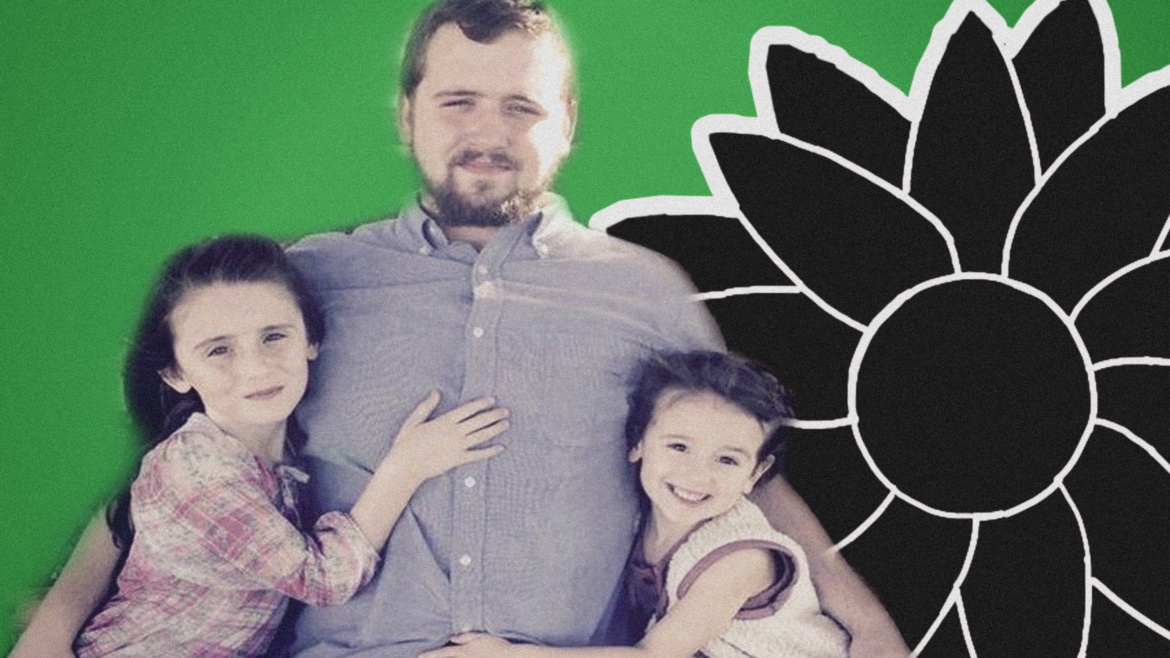
Daniel Shaver
(December 29, 1989 – January 18, 2016)
Do you reckon an innocent Arizonan might get nervous if an AR-15 was pointed at him while the police officer was screeching commands, such as, “Make a mistake and I will kill you?”
Would you get nervous?
While I don’t subscribe to the mentality of defunding law enforcement, I do believe that budgeting within our city police departments requires reorganization to counter instances of police brutality, for one, I fully condemn efforts to militarize police as police should be a part of the community. To counter declining faith in law enforcement, not only is improved law enforcement budgeting important (focusing on increased pay & bringing mental health experts into law enforcement rather than militarization), but there is a considerable amount of police impunity that must be quelled in Arizona. One example which comes to mind is the sadistic murder of Danial Shaver. It can be said that Daniel’s murderer, former officer Philip Brailsford, was protected by the system all the way through. The engraving on Philip’s murder weapon which stated ‘you’re fucked’ was prohibited from trial & then Mesa PD rewarded Philip with a temporary rehire so that he could apply for pension. The defense that Philip Brailsford used was that everything he did was in line with his training, I say that this if true, then this training is merely instructions on how to commit murder, not legitimate peace keeping.
We cannot be safe in a society where law enforcement are trained to have a perspective that is other than human. Any trained officer thinking the appropriate response to the ‘mistake’ of pulling up your pants is five bullets must be removed. Arizonan police training, especially Mesa & Phoenix PD, must now undergo a full transformation. Which is why I’ve decided to propose the Daniel Shaver Act to the public & it is my sincere hope that members of our legislature take what I’ve laid out & turn it into law.
The tragic death of Daniel Shaver in 2016 has underscored the need for meaningful police reform in Arizona. The Daniel Shaver Act is a comprehensive plan designed to ensure the safety of citizens, uphold accountability, and rebuild trust between law enforcement and the communities they serve.
Section 1: Use of Force Policy Reforms
1.1. Body-Worn Cameras:
- Mandatory Body Cameras: All law enforcement officers on duty must wear functioning body cameras.
- Immediate Activation: Officers are required to activate their body cameras immediately upon responding to a call or initiating an encounter.
1.2. Use of Deadly Force:
- Strict Guidelines: Develop and implement strict guidelines for the use of deadly force, emphasizing de-escalation tactics.
- Independent Review: Establish an independent body to review all cases involving the use of deadly force to ensure accountability.
1.3. Chokeholds and Strangulation:
- Ban on Chokeholds: Prohibit the use of chokeholds and any form of neck restraint.
- Accountability: Ensure disciplinary actions for officers who violate this policy.
Section 2: Training and Accountability
2.1. De-escalation Training:
- Mandatory Training: Require ongoing, comprehensive de-escalation training for all law enforcement officers.
- Crisis Intervention Training: Train officers in crisis intervention techniques to handle encounters involving individuals with mental health issues.
2.2. Body Language and Nonverbal Communication:
- Recognizing Nonverbal Cues: Train officers to identify and respond to nonverbal cues that may reduce the need for force.
2.3. Duty to Intervene:
- Obligation to Intervene: Mandate that officers have a duty to intervene when witnessing excessive use of force by a colleague.
2.4. Independent Oversight:
- Independent Review Boards: Create independent civilian oversight boards with the authority to investigate and recommend disciplinary actions.
Section 3: Community Policing and Engagement
3.1. Community Policing:
- Promote Community Engagement: Encourage community policing strategies that foster positive interactions between law enforcement and the community.
3.2. Bias Training:
- Implicit Bias Training: Provide officers with ongoing training to address implicit biases and prejudices.
3.3. Transparency:
- Transparency Portal: Create a public portal to access information on police activity, including use of force incidents and officer complaints.
Section 4: Data Collection and Reporting
4.1. Use of Force Reporting:
- Comprehensive Reporting: Mandate accurate and comprehensive reporting of all use of force incidents.
- Data Analysis: Regularly analyze use of force data to identify patterns and areas for improvement.
Section 5: Accountability and Discipline
5.1. Independent Prosecutions:
- Independent Prosecutors: Appoint independent prosecutors to handle cases involving law enforcement officers to ensure impartiality.
5.2. Body Camera Violations:
- Penalties: Impose penalties for officers who fail to activate body cameras as required.
Conclusion: The Daniel Shaver Act represents a comprehensive approach to police reform in Arizona. It aims to reduce the use of force, improve accountability, and rebuild trust between law enforcement and the communities they serve. By addressing the issues that led to tragic incidents like the one involving Daniel Shaver, Arizona can move towards a more just and equitable law enforcement system.
The Daniel Shaver Act (VERSION ONE)
Be it enacted by the Legislature of the State of Arizona:
A. Police departments in any Arizonan city must hire an amounting of mental health professionals equal to a fifth of the amounting of police officers employed, with an annual budget of twenty million dollars provided to each department for this tasking. Excess state funds provided to hire these mental health professionals must be used to provide bonuses to police officers only.
- Patrolling officers must be accompanied by a mental health professional hired by police departments for a minimum of three weeks if vetted complaints from citizens & fellow officers reach an amounting of 15 complaints per person within one fiscal year. Complaints are to be vetted by an Arizonan Police Misconduct Committee appointed by the legislature.
- Mental health professionals hired by police departments & tasked to an officer are empowered to suspend officers which display concerning behavior according to said mental health professional’s professional discretion.
B. Police training in all Arizona police academies is to be subject to review & alteration upon majority committee vote by a committee of mental health professionals appointed by the legislature to shape police policy regarding mediation performed by police officers.
C. To reflect the the difficulty of police work, & the accountability they must bear, all Arizonan city police officers deemed to have adequate mediation skills by the Police Misconduct Committee (PMC) after investigation or never undergo PMC investigation shall have their annual salaries raised by one thousand dollars at the end of the fiscal year. PMC approved salary raises end in an officer’s sixth year of employment after the passage of (Daniel Shaver Act). PMC salary raises are permanent.


1 Comment
Bettie
Wonderful views on that!
Here is my web blog hot shot bald cop